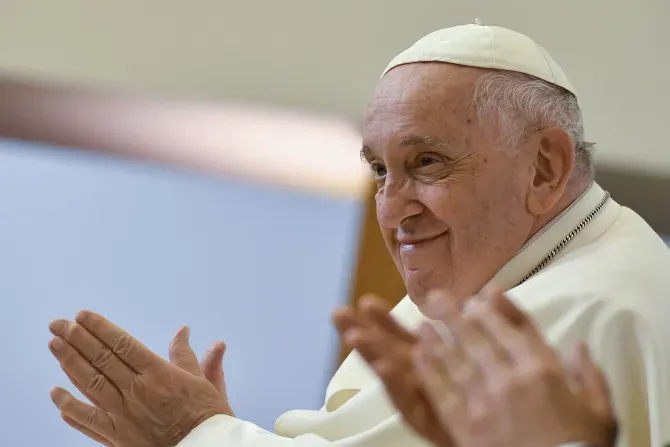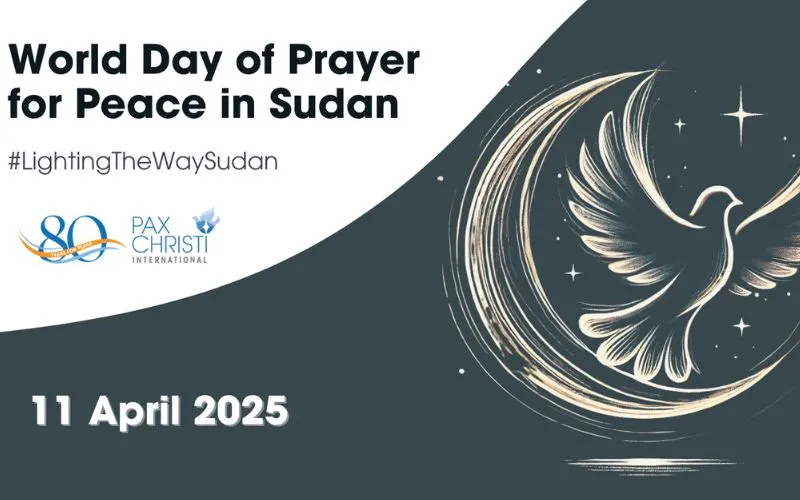The way forward, Pope Francis said, is truth: “The key to accessing this truth is a form of knowledge that is never detached from love, a knowledge that is relational, humble and open, concrete and communal, courageous and constructive. That is what universities are called to cultivate and faith is called to nurture.”
Francis also pointed out the increasing isolation of people immersed in social media, while being less and less “social,” and who “often resort, as if in a vicious circle, to the consolations of technology to fill their interior emptiness.”
“Living at a frenzied pace, prey to a ruthless capitalism, they become painfully conscious of their vulnerability in a society where outward speed goes hand in hand with inward fragility,” he said.
The pope added that he did not want to encourage pessimism but to reflect on the “hubris of pride and power denounced at the dawn of European culture by the poet Homer, which the technocratic paradigm exacerbates, and threatens, through a certain use of algorithms, to further destabilize our human ecology.”
The pope in his speech also addressed the importance of culture, which he described as “the ‘cultivation’ of our humanity and its foundational relationships: with the transcendent, with society, with history, and with creation.”
(Story continues below)
He said the 1907 novel “The Lord of the World,” by Robert Hugh Benson, “was to some degree prophetic in its description of a future dominated by technology, where everything is made bland and uniform in the name of progress, and a new ‘humanitarianism’ is proclaimed, canceling diversity, suppressing the distinctiveness of peoples and abolishing religion.”
“Opposed ideologies merge and an ideological colonization prevails, as humanity, in a world run by machines, is gradually diminished and social bonds are weakened,” he said.
“In the technically advanced yet grim world described by Benson, with its increasingly listless and passive populace, it appears obvious that the sick should be ignored, euthanasia practiced and languages and cultures abolished, in order to achieve a universal peace that is nothing else than an oppression based on the imposition of a consensus.”
The pope said one of the messages he wanted to leave the university students and faculty with was the famous maxim “know thyself.”
“What do those words mean: Know thyself? They counsel us to be able to recognize our limitations and, consequently, to curb the presumption of self-sufficiency,” he said. “Technocratic thinking pursues a progress that admits no limits, yet flesh and blood human beings are fragile, and it is precisely by experiencing this, that they come to realize their dependence on God and their connectedness to others and to creation.”
Pope Francis’ visit to Budapest included meetings with President Katalin Novák and Prime Minister Viktor Orbán. He also spent time with visually impaired children, young adults, and clergy. On the morning of April 30, he celebrated Mass for 50,000 people gathered in and around Kossuth Lajos Square.
Hannah Brockhaus is Catholic News Agency's senior Rome correspondent. She grew up in Omaha, Nebraska, and has a degree in English from Truman State University in Missouri.




 On April 30, 2023, the pope addressed around 250 people, including 30 students, from the Faculty of Information Technology and Bionics at the Pázmány Péter Catholic University in Budapest. Vatican News
On April 30, 2023, the pope addressed around 250 people, including 30 students, from the Faculty of Information Technology and Bionics at the Pázmány Péter Catholic University in Budapest. Vatican News



